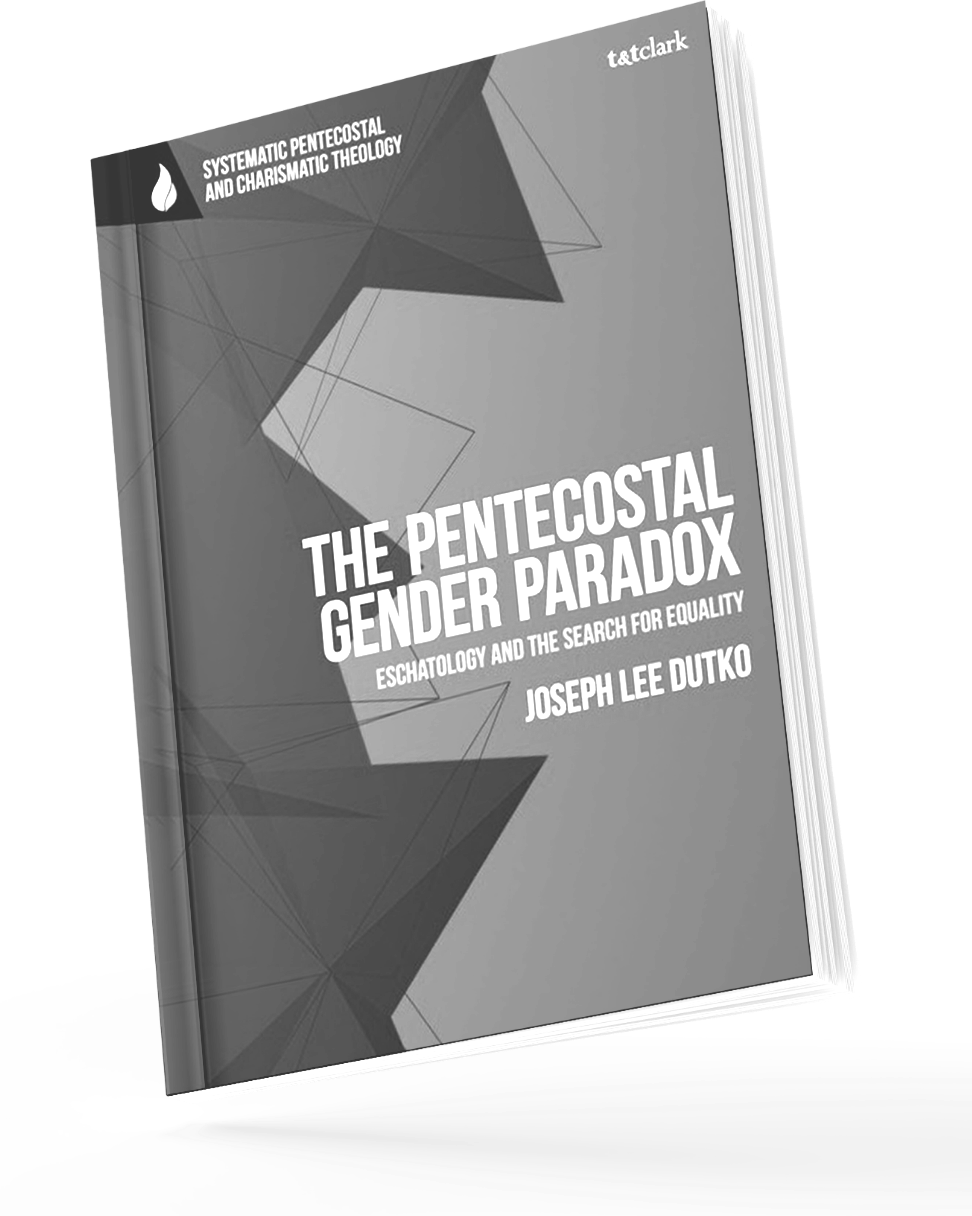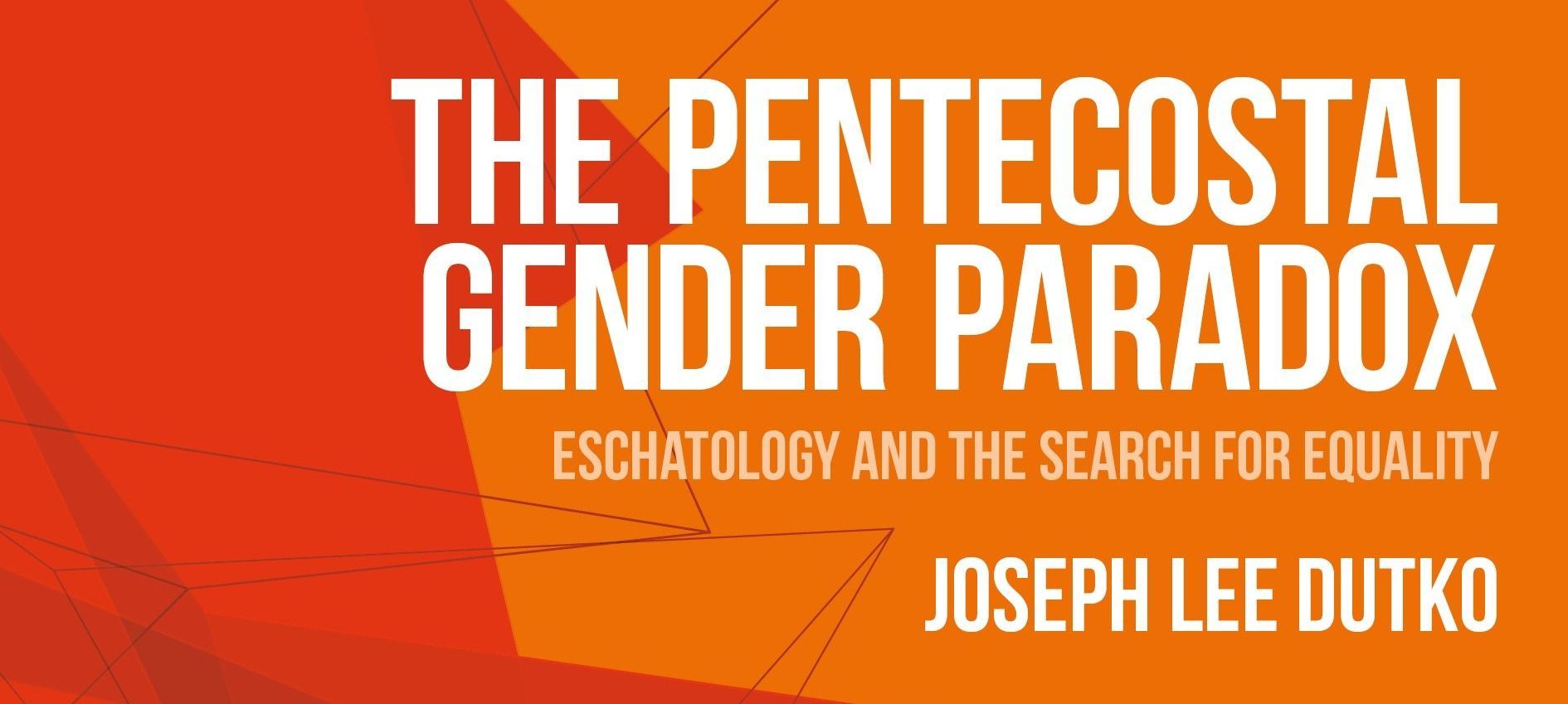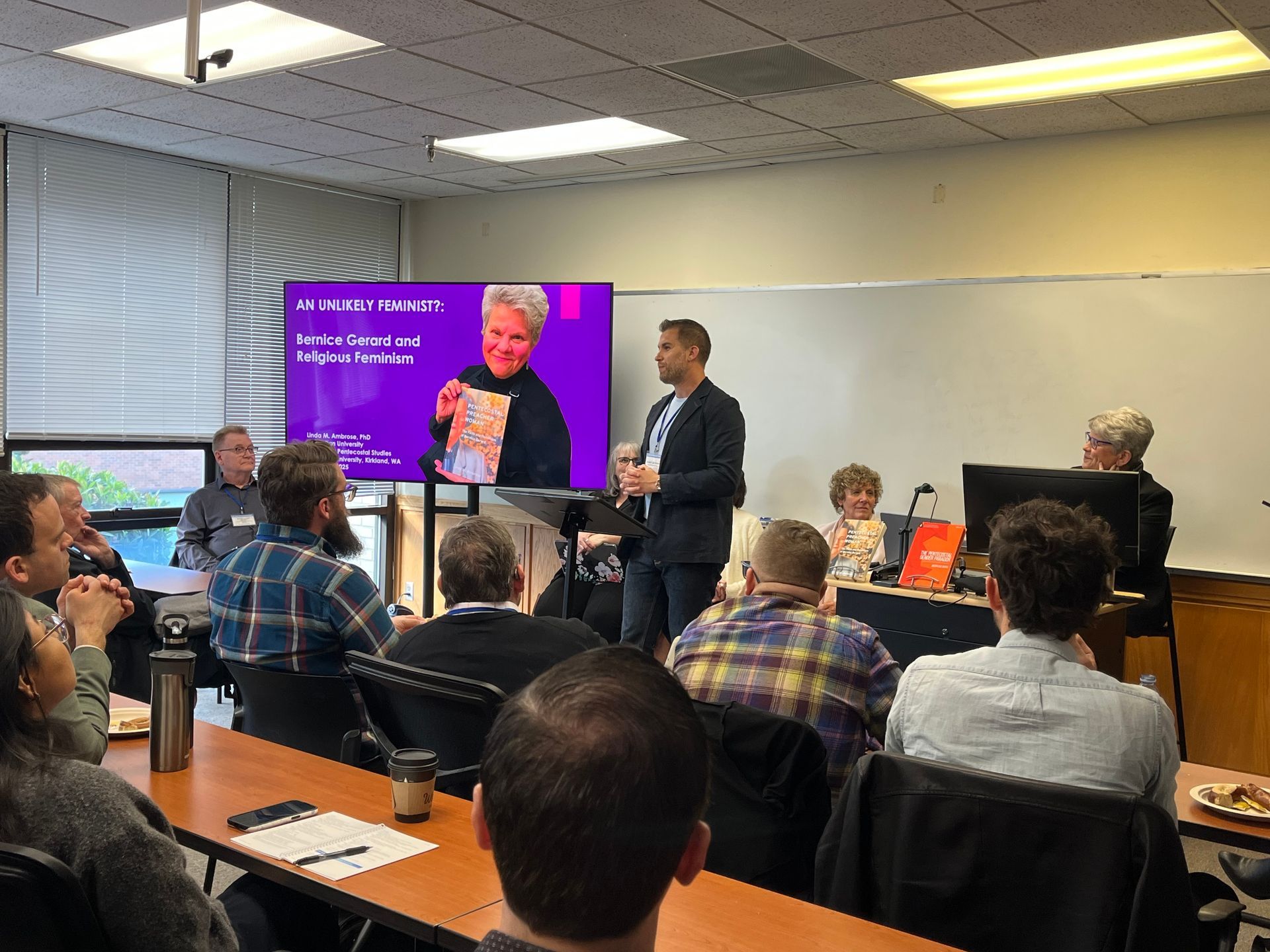Excerpt from Ch. 2: "Women & Eschatology in the Early Pentecostal Movement""
An Excerpt from Chapter 2
Over the next few weeks I'll be releasing short excerpts from each chapter of The Pentecostal Gender Paradox to give you a feel for the work.
Remember you can read the entire Introduction here.
Want to purchase? Info and discounts HERE.
Excerpt from Chapter 2:
"Women & Eschatology in the Early Pentecostal Movement"
Note: footnotes not included in excerpt
Pages 79-80:
2.3.1 The Egalitarian Heart of the Movement
In their introduction to their edited volume Women in Pentecostal and Charismatic Ministry, Margaret English de Alminana and Lois Olena say the achievements of American Pentecostal women have been “overlooked, marginalized, or rejected” despite the fact that it was women “who launched and carried Pentecostalism” in the early years. This “androcentricity” of Pentecostal history has led to “testimonial injustice” and “epistemic violence” toward women. Their book is a corrective effort from a female-centric perspective to hear the “overlooked feminine majority” from past and present within the movement. In her well-received book on women in the Assemblies of God, Qualls argues that
constantly omitting women from the story of Pentecostal history reinforces the current ambiguity women consistently face regarding their roles in the church.
Pentecostal scholars wonder why, despite Pentecostals’ treasuring of their spiritual experiences and telling of stories, the stories of the “foremothers” of the Pentecostal faith have failed to find a central place in the telling and writing of the Pentecostal story. Just one example of this omission of women in popular Pentecostal literature is Keith Malcomson’s book Pentecostal Pioneers Remembered: British and Irish Pioneers of Pentecost. Malcomson features twenty-six “Pentecostal Pioneers,” only one of which is a woman (Eleanor Crisp), and the front cover is a black and white photo of fifteen men. A different example is that while most histories of the Azusa Street revival consider Seymour the most influential and central figure, much of the primary evidence suggests Lucy Farrow may have be just as instrumental in bringing about the revival. These kinds of works and images reinforce the faulty notion that the Pentecostal movement was and is a movement led and dominated by men. In their 2002 essay, Cerillo and Wacker lament the “paucity of scholarly work on women in the pentecostal and charismatic movements.” Although much progress has been made in the last twenty years, providing historical revision of patriarchal interpretations of the movement and the “naming” of women remains an important and necessary step for any work on gender . . .
..........................................................................
Pages 84-85:
It is widely agreed that eschatology was central to, and perhaps even the best way to understand and explain, the rapid growth of the early Pentecostal movement and its beliefs and practices. Pentecostal scholars describe eschatology as the integrating core, central theme, primary message, ultimate concern, most prominent feature, primary framework, hermeneutical key, and driving force of early Pentecostalism.
Eschatology “permeates” the pages of Apostolic Faith, often side by side or intermingled with stories of women.
Pentecostal scholars have argued that almost all experiences and expressions of early Pentecostal congregations were in anticipation of Christ’s soon return and were interpreted within that framework. Although Spirit baptism and tongues are sometimes considered the central component of early Pentecostalism, many argue eschatology was more important: the outpouring of the Spirit found its significance mainly as a sign of the “last days” and “latter rain,” fueling the eschatological urgency of the movement. . . .
In order to propose an eschatological argument for the equal role of women and equal access to leadership positions for women in Pentecostalism, it is important to show that both eschatological and egalitarian tendencies were foundational to the early heart of the movement. The brief sketch above and overall historical evidence presented in this chapter opens the door for the potential of an eschatological resolving of the Pentecostal gender paradox because it proves an eschatologically authorized egalitarianism is consistent with the early heart of the movement. What was lacking for early Pentecostals, and what eventually contributed to the decline of both the prominence of women and eschatology, was the development and articulation of a hermeneutic that reflected this early eschatological authorization of women leaders.
NEWSLETTER SIGNUP (blog post layout)
ABOUT JOSEPH
Pastor, Author, and sometimes pretends to be a Scholar
Joseph (PhD, University of Birmingham) is the author of The Pentecostal Gender Paradox: Eschatology and the Search for Equality.
Since 2015, he and his wife have together pastored Oceanside Community Church on Vancouver Island, where they live with their four children.










